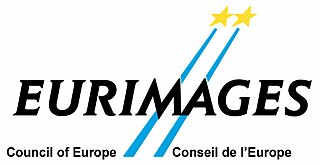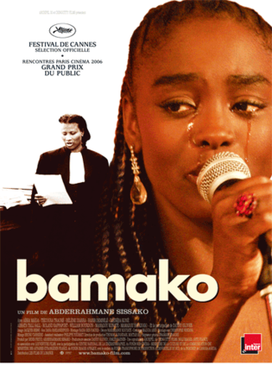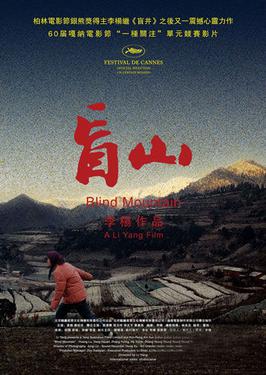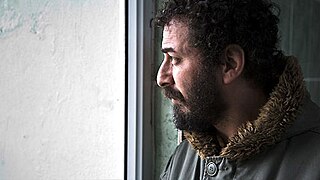Related Research Articles

The Istanbul Film Festival is the first and oldest international film festival in Turkey, organised by the Istanbul Foundation for Culture and Arts. It is held every year in April in movie theaters in Istanbul, Turkey. As mentioned in its regulations, the festival aims to encourage the development of cinema in Turkey and to promote films of quality in the Turkish cinema market.

Kutluğ Ataman is an acclaimed Turkish-American contemporary artist and feature filmmaker. Ataman's films are known for their strong characterization and humanity. His early art works examine the ways in which people and communities create and rewrite their identities through self-expression, blurring the line between reality and fiction. His later works focus on history and geography as man-made constructs. He won the Carnegie Prize for his works Kuba in 2004. In the same year he was nominated for Turner Prize for his work Twelve.

Souleymane Cissé is a Malian film director, regarded as one of the first generation of African filmmakers. He has been called "Africa's greatest living filmmaker" while his film Yeelen has been called "conceivably the greatest African film ever made."

Eurimages is a cultural support fund of the Council of Europe, established in 1989. Eurimages promotes independent filmmaking by providing financial support to feature-length fiction, animation, and documentary films. In doing so, it encourages co-operation between professionals across Europe. Eurimages is headquartered in Strasbourg, France in the Agora building of the Council of Europe. The current Chairperson is Catherine Trautmann.

The Antalya Golden Orange Film Festival, known for a few years from 2015 as Antalya International Film Festival, is a film festival, held annually since 1963 in Antalya, and is the second most important film festival in Turkey. Since 2009, the event, which takes place in the autumn months at the Antalya Cultural Center, has been organised solely by the Antalya Foundation for Culture and Arts and has included an international section within the main body of the festival.

The International Romani Day is a day to celebrate Romani culture and raise awareness of the issues facing Romani people.

Bamako is a 2006 film directed by Abderrahmane Sissako, first released at the 2006 Cannes Film Festival on 21 May and in Manhattan by New Yorker Films on 14 February 2007.

Blind Mountain is a 2007 Chinese film directed by Li Yang. It is also known as Road Home.
Ali Özgentürk is a Turkish film director, screenwriter, and producer. He was born on 4 November 1947 in Adana, Turkey. After studying philosophy and sociology at Istanbul University, he became involved in theater, as an actor, director, and playwright. He founded Istanbul's first street theater troupe in 1968. He began working in the Turkish film industry in 1974 as a camera assistant, and eventually became an assistant and screenwriter for famous Kurdish film directors such as Atif Yilmaz and Yılmaz Güney.

The European Parliament LUX Prize, commonly known as the LUX Prize or LUX Film Prize, was a prize given to a competing film by the European Parliament. Introduced in 2007, the prize is named after the Latin word for "light", lux.
SIGNIS (official name: World Catholic Association for Communication) is a Roman Catholic lay ecclesial movement for professionals in the communication media, including press, radio, television, cinema, video, media education, internet, and new technology. It is a non-profit organization with representation from over 100 countries. It was formed in November 2001 by the merger of International Catholic Organization for Cinema and Audiovisual (OCIC) and International Catholic Association for Radio and Television (Unda). At its World Congress in Quebec in 2017, SIGNIS welcomed also former member organisations of the International Catholic Union of the Press (UCIP).

Maud de Boer-Buquicchio is a Dutch jurist and former UN Special Rapporteur on the sale of children, child prostitution and child pornography. She served as Deputy Secretary General of the Council of Europe from 2002 and retired from the post in 2012 and was succeeded by Gabriella Battaini-Dragoni.
Zeka Laplaine, sometimes credited as José Laplaine, is a director and actor from Ilebo in the Democratic Republic of the Congo. The child of a Portuguese father and Congolese mother, he moved to Europe when he was 18. His 1996 short film Le Clandestin was featured at the 2010 Amakula International Film Festival in Uganda. He portrayed a cowboy alongside Danny Glover in Death in Timbuktu, a film within a film in the Council of Europe Film Award-winning film, Bamako. Laplaine is a member of France's "Guilde Africaine des Realisateurs et Producteurs".
The European Civil Rights Prize of the Sinti and Roma was founded in November 2007 in Heidelberg by the Central Council of German Sinti and Roma, the Documentation and Cultural Centre of German Sinti and Roma and the Manfred Lautenschläger Foundation. The international prize is endowed with 15,000 Euro by the Foundation. It was awarded for the first time in December 2008.
The International Film Festival and Forum on Human Rights (FIFDH) is one of the most important international events dedicated to cinema and human rights, held annually in Geneva. A ten-days long event is based on the concept ‘A film, A subject, A debate’, following the screenings with discussion in presence of filmmakers and specialists.

Bülent Öztürk is a Belgian-Kurdisch screenwriter and director based in Antwerp, Belgium. His films have been nominated for and celebrated with several (international) awards. His films stand out because of their minimalist and documentary style with spare use of dialogue and the recurrence of socially and culturally concerned themes. His short film Houses with Small Windows (2013) was awarded the title of best European short film at the Venice Film Festival, and was nominated for the 26th European Film Awards in Berlin. In his home country the film received an ‘Ensor’ for best short film at the Ostend Film Festival. Apart from writing and directing two documentaries and three short films, Öztürk presented his first feature film Blue Silence in 2017, with the support of The Flanders Audiovisual Fund (VAF).
The 32nd European Film Awards were presented in Berlin, Germany, on 7 December 2019.

Kazim Öz is a Kurdish film director, scriptwriter and producer. In 1992 he began acting at Teatra Jiyana Nû, while also working on movies.

Cineuropa is an online information portal dedicated to the promotion of European cinema. It publishes daily news, reviews, interviews, and industry reports and maintains a database of information. It is available in four languages: English, French, Italian and Spanish. It is co-funded by the Creative Europe MEDIA Programme of the European Union. El País described Cineuropa as "an online media outlet that is very popular in the industry."
References
- ↑ "'Yellow Heat,' 'Clair Obscur' lead pack at Istanbul Film Festival awards". Hurriyetdailynews.com. 16 April 2017. Retrieved 1 November 2024.
- ↑ Council of Europe Film Award (FACE) Archived 2010-07-09 at the Wayback Machine
- ↑ "Human Rights in Cinema". Istanbul International Film Festival, Istanbul Foundation for Culture and Arts. Archived from the original on 2007-10-27. Retrieved 2008-04-03.
- ↑ "Awards of the 27th International İstanbul Film Festival". Istanbul International Film Festival, Istanbul Foundation for Culture and Arts. Archived from the original on 2009-07-07. Retrieved 2008-04-24.
- ↑ "Council of Europe Film Award (FACE)". Council of Europe . Retrieved 2008-04-04.
- ↑ Council of Europe Press Division. ""Bamako", winner of the first Council of Europe film award in Istanbul". Council of Europe Directorate of Communication. Retrieved 2008-04-04.